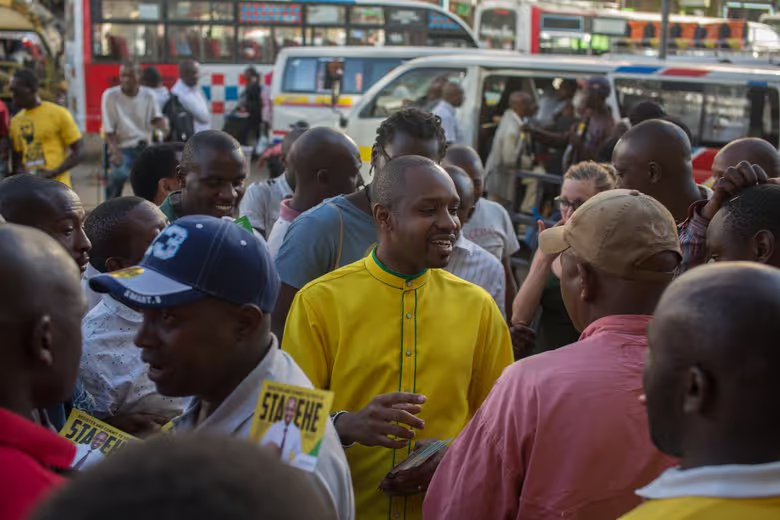Softie Delve Deeper Reading List Adult Fiction
Adult Fiction

Ngugi wa Thiong'o. A Grain of Wheat. New York, NY: Penguin Books; Penguin Classics, 2012.
Set in the wake of the Mau Mau rebellion and on the cusp of Kenya’s independence from Britain, A Grain of Wheat follows a group of villagers whose lives have been transformed by the 1952–1960 Emergency Period. At the center of it all is the reticent Mugo, the village’s chosen hero and a man haunted by a terrible secret. As we learn of the villagers’ tangled histories in a narrative interwoven with myth and peppered with allusions to real-life leaders, including Jomo Kenyatta, the story unfolds in which compromises are forced, friendships are betrayed, and loves are tested.
Owuor, Yvonne Adhiambo. Dust. New York, NY: Knopf, 2014.
When a young man is gunned down in the streets of Nairobi on the day of the tumultuous 2007 election in Kenya, his grief-stricken father and sister bring his body back to their crumbling home in the Kenyan drylands. The murder stirs up memories long since buried, and the truth unfolds with secrets that were hidden deep within the shared past of a a family and their conflicted nation, stretching back to a shocking political assassination in 1969 and the Mau Mau uprisings against British colonial rule in the 1950’s.
Vassanji, M.G. The In-Between World of Vikram Lall. New York, NY: Knopf, 2004.
In 1953 Kenya, as the world celebrates the coronation of Queen Elizabeth II, the lives of a group of friends — two children of Indian descent, an African boy, and two young British siblings — are forever transformed by the growing violence of the Mau Mau uprising against British rule and a guerrilla raid that hits shockingly close to their home.
Verjee, Iman. Who Will Catch Us As We Fall. London, UK: Oneworld Publications, 2016.
Growing up in Nairobi of the 90’s, a boiling pot of racial tension and conflicting cultural taboos, Leena and Jai are raised to believe in a Kenya full of possibility and potential. But as they come of age and venture into a world of underground activists beyond the confines of their tight-knit East Asian community and closely guarded, gated compound, they start to see a country divided by deep ethnic allegiances and on the brink of something very sinister.
Wa Thiong’o, Ngugi, Weep Not Child Ngugi, New York, New York: Penguin Random House, 2012
Two brothers, Njoroge and Kamau, stand on a garbage heap and look into their futures: Njoroge is to attend school, while Kamau will train to be a carpenter. But this is Kenya, and the times are against them: In the forests, the Mau Mau is waging war against the white government, and the two brothers and their family need to decide where their loyalties lie. For the practical Kamau, the choice is simple, but for Njoroge the scholar, the dream of progress through learning is a hard one to give up.
The first East African novel published in English, Weep Not, Child explores the effects of the infamous Mau Mau uprising on the lives of ordinary men and women, and on one family in particular.
Wa Ngugi, Mukoma Nairobi Heat. New York, New York: Melville International Crime, 2011.
Detective Ishmael is investigating the murder of a young woman found on the doorstep of an African peace activist, Joshua Hakizimana. Ishmael suspects that the crime is racially motivated but receives a mysterious phone call, “If you want the truth, you must go to its source. The truth is in the past. Come to Nairobi.” His journey for the truth will take him to a place where history can get you killed.
